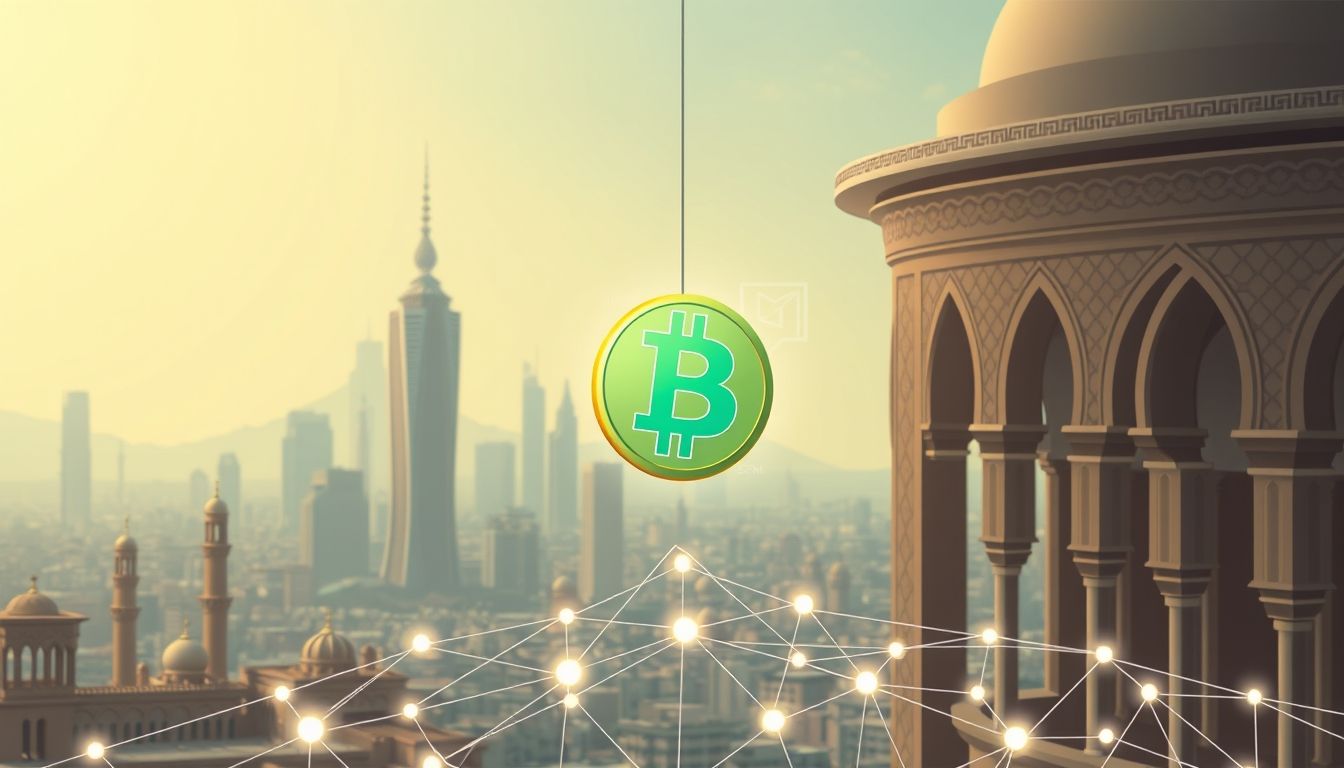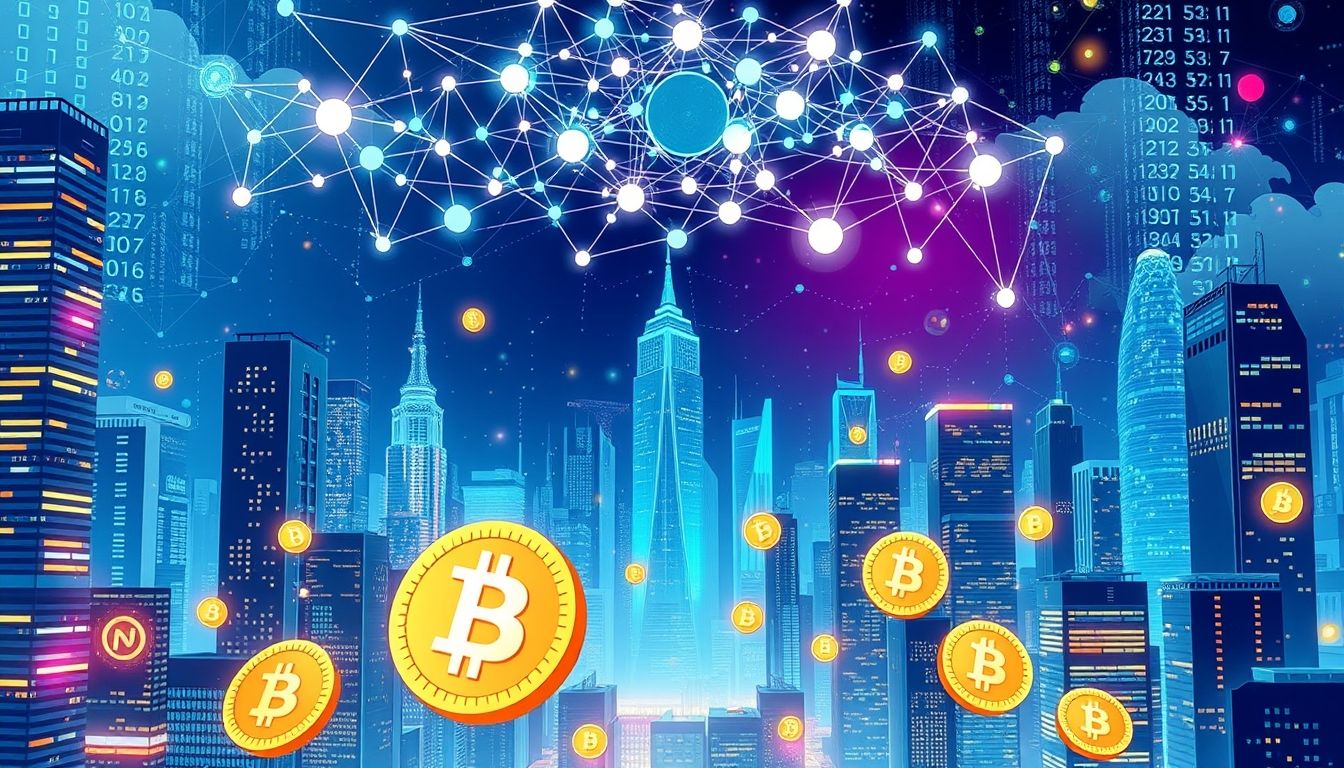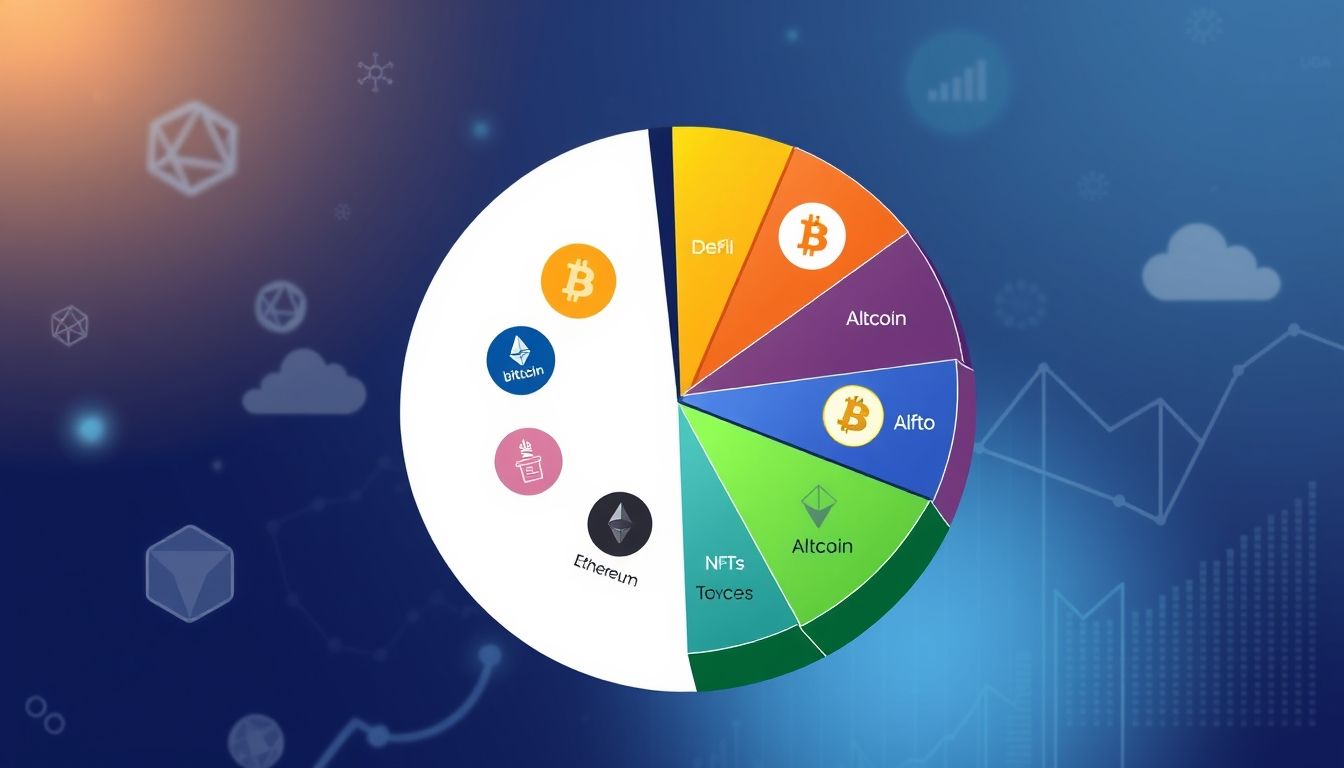Introduction: The Middle East on the Cusp of a Decentralized Finance Revolution
The Middle East is witnessing an unprecedented digital boom, driven by the widespread adoption of smartphones, rising internet usage rates, and the embrace of modern technologies by governments and businesses alike. In this context, cryptocurrencies and Web 3.0 technologies are emerging as pivotal forces capable of reshaping the traditional financial landscape in the region.
Decentralized Finance (DeFi) represents a paradigm shift in the world of finance, aiming to create an open, transparent, and inclusive financial system based on blockchain technology. This system allows users to access various financial services, such as lending, borrowing, trading, and investing, without the need for a central intermediary like banks or traditional financial institutions.
In this article, we will deeply explore the impact of Web 3.0 and cryptocurrencies on the future of decentralized finance in the Middle East, focusing on the opportunities and challenges facing this digital revolution.
Chapter 1: Understanding Web 3.0 and Decentralized Finance
What is Web 3.0?
Web 3.0 is the next generation of the internet, aiming to create a decentralized, more intelligent, and more secure network. Web 3.0 relies on technologies such as blockchain, artificial intelligence, and the semantic web to empower users to control their data and interact with applications and services more effectively.
- Decentralization: Distributing power and control across a wide network of users, rather than relying on centralized entities.
- Transparency: Using blockchain technology to record transactions permanently and transparently, increasing trust and credibility.
- Security: Using advanced encryption technologies to protect data and transactions from hacking and fraud.
What is Decentralized Finance (DeFi)?
Decentralized Finance (DeFi) is an open, transparent, and inclusive financial system based on blockchain technology. DeFi aims to provide an alternative to the traditional financial system by creating decentralized financial applications and services, such as:
- Lending and Borrowing: Platforms that allow users to lend or borrow cryptocurrencies, earning interest or paying interest.
- Decentralized Trading: Platforms that allow users to trade cryptocurrencies directly with each other, without the need for a central intermediary.
- Asset Management: Tools that allow users to manage their cryptocurrency investment portfolios effectively.
- Financial Derivatives: Financial contracts based on the value of digital assets, such as futures and options.
Chapter 2: The Role of Cryptocurrencies in Promoting Decentralized Finance
Cryptocurrencies, especially cryptocurrencies like Bitcoin and Ethereum, play a crucial role in promoting the growth and development of decentralized finance. These currencies provide the necessary infrastructure for creating DeFi applications and services, and enable users to participate in this new financial system.
Cryptocurrencies as Collateral in DeFi
Cryptocurrencies are used as collateral in many DeFi applications, such as lending and borrowing platforms. For example, users can deposit their cryptocurrencies as collateral to obtain loans, or provide loans to other users in exchange for interest. This provides users with a way to earn money from their cryptocurrency holdings and increases the liquidity of the system.
Stablecoins and Their Role in Stabilizing DeFi
Stablecoins are digital currencies designed to maintain a stable value, usually pegged to the US dollar or another stable currency. Stablecoins play a vital role in stabilizing the DeFi system, providing a means to trade cryptocurrencies and value digital assets without being exposed to extreme price volatility.
Chapter 3: Opportunities for Decentralized Finance in the Middle East
Decentralized finance offers tremendous opportunities for economic growth and innovation in the Middle East, especially in light of the challenges facing the traditional financial system in the region, such as high unemployment rates, lack of financial inclusion, and restrictions on cross-border financial transfers.
Enhancing Financial Inclusion
Decentralized finance can help enhance financial inclusion in the Middle East by providing access to financial services for individuals and businesses that cannot access them through the traditional financial system. For example, DeFi applications can provide small loans to startups or facilitate cross-border financial transfers for expatriate workers.
Attracting Foreign Investment
Decentralized finance can help attract foreign investment to the Middle East by providing new and innovative investment opportunities. For example, foreign investors can invest in emerging DeFi projects in the region or participate in decentralized lending and borrowing platforms.
Chapter 4: Challenges of Decentralized Finance in the Middle East
Despite the tremendous opportunities that decentralized finance offers in the Middle East, it also faces several challenges, such as:
Legal and Regulatory Frameworks
Unclear or non-existent legal and regulatory frameworks in many Middle Eastern countries are among the biggest challenges facing the growth of decentralized finance. Governments in the region must develop a clear and organized legal and regulatory framework to regulate the DeFi industry, taking into account the potential risks and benefits.
Awareness and Knowledge
Awareness and knowledge of decentralized finance are still limited in the Middle East. Governments, companies, and educational institutions must work to raise awareness of the importance of DeFi and its benefits by organizing awareness campaigns, providing training courses, and creating educational platforms.
Cybersecurity
Cybersecurity risks are among the biggest challenges facing decentralized finance. Companies and developers working in the DeFi field must take strong security measures to protect their applications and platforms from cyberattacks and ensure the safety of users' funds.
Chapter 5: Practical Examples of DeFi Applications in the Middle East
Some practical examples of DeFi applications have already begun to emerge in the Middle East, demonstrating the great potential of this technology in the region.
Decentralized Lending and Borrowing Platforms
Some startups in the Middle East have begun developing decentralized lending and borrowing platforms that allow users to lend or borrow cryptocurrencies, earning interest or paying interest. These platforms provide an attractive alternative to traditional banks and help enhance financial inclusion.
Decentralized Trading Platforms
Some companies are developing decentralized trading platforms that allow users to trade cryptocurrencies directly with each other, without the need for a central intermediary. These platforms provide greater liquidity, lower trading fees, and greater control over assets.
Chapter 6: The Role of Governments in Supporting Decentralized Finance
Governments play a crucial role in supporting the growth and development of decentralized finance in the Middle East. Governments must take proactive steps to create a suitable regulatory and legislative environment and encourage innovation and investment in this field.
Developing a Clear Legal and Regulatory Framework
Governments must develop a clear and organized legal and regulatory framework to regulate the DeFi industry, taking into account the potential risks and benefits. This framework should be flexible enough to allow for innovation but strong enough to protect investors and users.
Encouraging Innovation and Investment
Governments should encourage innovation and investment in the DeFi field by providing tax incentives, providing funding for emerging projects, and creating specialized incubators and accelerators.
Chapter 7: The Future of Decentralized Finance in the Middle East
The future of decentralized finance looks promising in the Middle East, with expectations of significant growth in the coming years. DeFi is expected to play a crucial role in transforming the financial landscape in the region, enhancing financial inclusion, and attracting foreign investment.
Increasing Adoption of Cryptocurrencies
The Middle East is expected to see increasing adoption of cryptocurrencies, which will increase demand for DeFi applications and services. This will lead to increased investment in this field and accelerate the pace of innovation.
Infrastructure Development
The infrastructure needed to support the growth of DeFi is expected to be developed in the Middle East, such as high-speed internet networks, digital payment platforms, and cloud computing services. This will make it easier for companies and developers to create DeFi applications and services, and for users to access them.
Chapter 8: Tips for DeFi Investors in the Middle East
If you are considering investing in DeFi in the Middle East, here are some tips to keep in mind:
- Do Thorough Research: Before investing in any DeFi project, be sure to do thorough research on the project, the team, the technology used, and the potential risks.
- Start with Small Amounts: Don't invest more than you can afford to lose. Start with small amounts and gradually increase your investments as you gain more experience.
- Diversify Your Investments: Don't put all your money into one project. Diversify your investments across a variety of projects and platforms.
- Beware of Scams: Be wary of scams and fraudulent projects. Make sure the project you are investing in is real and legitimate.
Chapter 9: Regulatory and Legal Challenges and How to Overcome Them
Regulatory and legal challenges pose a significant obstacle to the growth of decentralized finance in the Middle East. To overcome these challenges, governments, companies, and institutions must work together to create a clear and organized legal and regulatory framework.
Dialogue and Cooperation
Governments, companies, and institutions should engage in constructive dialogue and cooperation to exchange ideas and experiences and reach practical solutions for regulating the DeFi industry.
Flexibility and Adaptation
The legal and regulatory framework should be flexible enough to allow for innovation but strong enough to protect investors and users. The framework should be adaptable to technological changes and market developments.
Chapter 10: Conclusion and Recommendations
Decentralized finance represents a tremendous opportunity for economic growth and innovation in the Middle East. By embracing this technology, countries in the region can enhance financial inclusion, attract foreign investment, and improve the efficiency of the financial system.
To achieve these benefits, governments, companies, and institutions must work together to create a suitable regulatory and legislative environment and encourage innovation and investment in this field. Investors should also exercise caution and conduct thorough research before investing in any DeFi project.
With proper planning and implementation, decentralized finance can play a crucial role in building a more inclusive and sustainable financial future in the Middle East.




